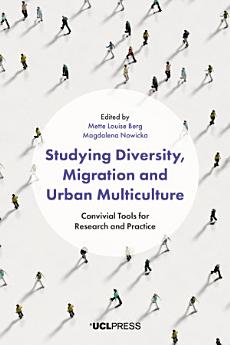Studying Diversity, Migration and Urban Multiculture: Convivial Tools for Research and Practice
About this ebook
Drawing on a range of innovative and participatory methods, each chapter examines conviviality in different cities across the UK. The contributors ask how the research process itself can be made more convivial, and show how power relations between researchers, those researched, and research users can be reconfigured – in the process producing much needed new knowledge and understanding about urban diversity, multiculturalism and conviviality. Examples include embroidery workshops with diverse faith communities, arts work with child language brokers in schools, and life story and walking methods with refugees.
Studying Diversity, Migration and Urban Multiculture is interdisciplinary in scope and includes contributions from sociologists, anthropologists and social psychologists, as well as chapters by practitioners and activists. It provides fresh perspectives on methodological debates in qualitative social research, and will be of interest to scholars, students, practitioners, activists, and policymakers who work on migration, urban diversity, conviviality and conflict, and integration and cohesion.
About the author
Mette Louise Berg is an anthropologist and associate professor at the Thomas Coram Research Unit within the Department of Social Science at UCL. Her research interests include migration, diasporas and transnationalism, urban diversity and conviviality, gender and generation, and ethnographic methods. Mette has conducted fieldwork on diversity in London, and has worked on the Cuban diaspora for many years.
Magdalena Nowicka is a sociologist and professor of migration and transnationalism at the Institute of Social Sciences at Humboldt-Universität zu Berlin, and Head of the Integration Department at DeZIM e.V. (German Centre for Integration and Migration Research) in Berlin. Her interests are in qualitative research methods, inter-ethnic relations and dynamics of social inequality.






